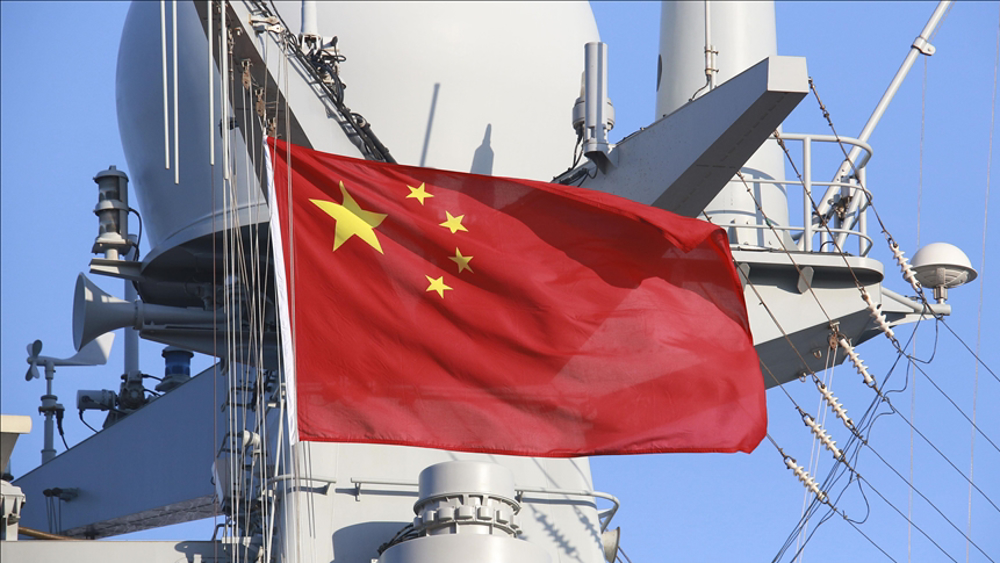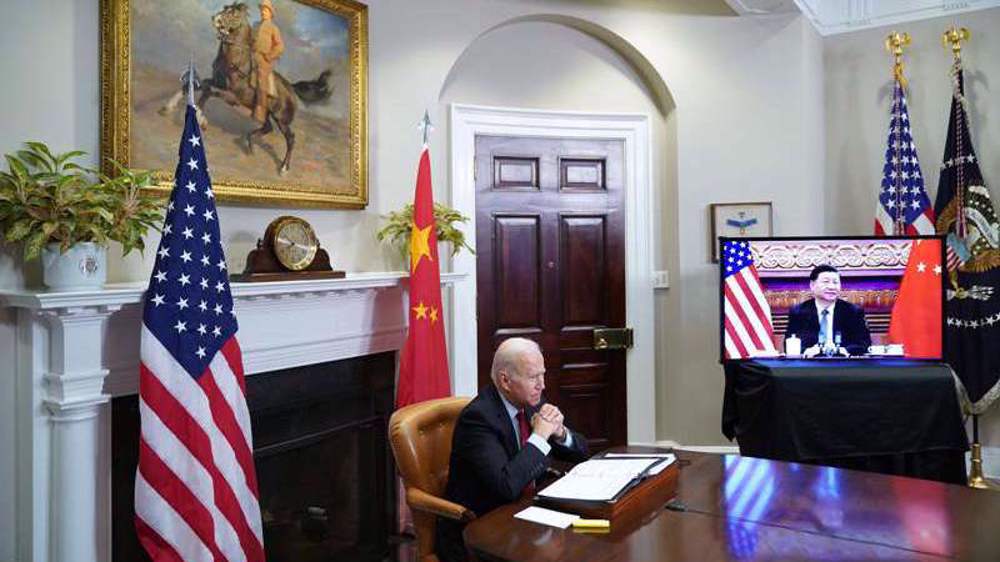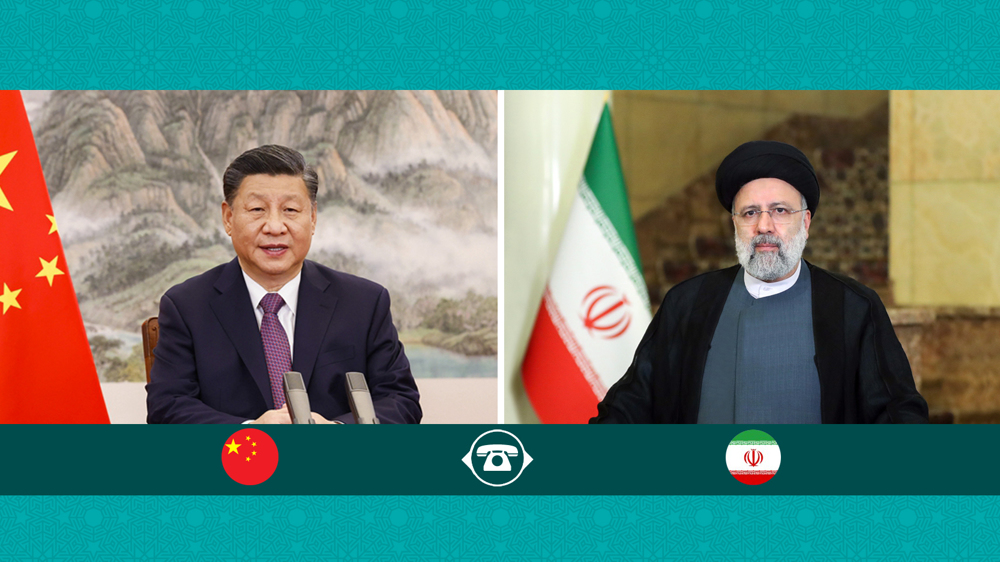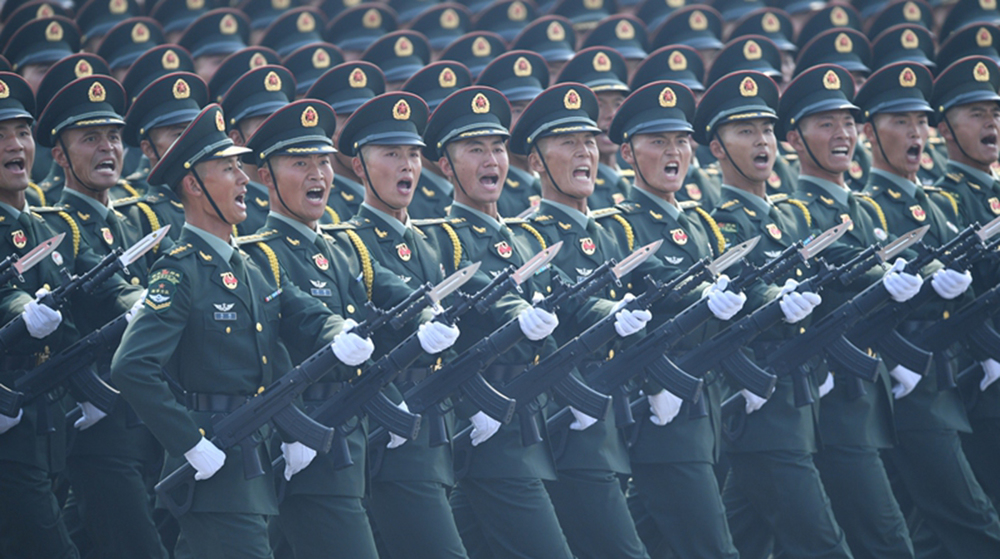US lawmakers introduce bill to arm Taiwan, mirroring Ukraine aid bill
A bipartisan group of US lawmakers has introduced legislation that would authorize the Biden administration to establish a new military aid program for Taiwan, resembling a recently passed bill to surge weapon shipments to Ukraine.
The so-called ‘Taiwan Democracy Defense Lend-Lease Act’ -- introduced Friday by Republican congresswoman Michelle Steel and Democratic Representative Jimmy Panetta, both of California, as well as Republican Senator Marsha Blackburn of Tennessee -- would authorize the US president to lend or lease weapons and military equipment to the self-ruled island territory of Chinese Taipei, which Taiwan would pay for over a 12-year period.
Modeled after the 1940s Lend-Lease Act that allowed the US to arm the allied powers during World War II, the bill resembles a recently passed legislation aimed at boosting weapons shipments to Ukraine as part of a US-led war effort against Russia.
The bill’s title and wording is quite similar to that of the so-called ‘Ukraine Democracy Defense Lend-Lease Act’ that was signed into law by US President Joe Biden back in May after it passed both houses of Congress with nearly no opposition.
“Taiwan is our greatest partner in the Indo-Pacific region, and their continued sovereignty is essential to challenging the New Axis of Evil,” Blackburn boasted in a statement published in her official website, referencing an often-maligned term used by former hawkish US President George W. Bush to group foreign nations that challenged Washington’s expansionist policies across the globe.
“Taiwan should know that the United States will support them with defense supplies – including weapons and machinery – regardless of what the Chinese Communist Party says,” she further stated in a provocative tone sure to irk China. “Our legislation will proactively strategize US defense policy in support of the Taiwanese people amid growing threats from Beijing.”
The development came as China conducted military drills in the Taiwan Strait on Saturday ahead of a possible visit to Taipei by Speaker of the US House of Representative Nancy Pelosi.
The live-fire military maneuvers was announced via the Chinese state media a day earlier, raising the stakes ahead of the planned visit by Pelosi to the self-ruled island territory claimed by China.
The maneuvers also came about as the Biden administration sought on Friday to defuse heated Chinese warnings against Pelosi’s potential visit to Taipei as part of her East Asia tour intended to push Washington’s escalating measures to undermine Beijing in the region.
Pelosi -- who would be traveling on US military aircraft during her Asia tour – confirmed to reporters on Friday that she planned the provocative visit to Taiwan because of the Biden administration's "strong emphasis" on the Asia-Pacific region.
However, she pointedly refused to confirm that she would indeed visit the self-ruled island citing travel security considerations.
"I don't ever talk about my travels, because some of you know, it's a security issue," she said.
Pelosi raised fears late last week about “my plane getting shot down or something like that” after US officials were cited in a CNN report as saying that Biden had reflected the concerns of US military authorities that her trip to Taiwan “it’s not a good idea right now.”
"I think what the President was saying is that maybe the military was afraid of my plane getting shot down or something like that. I don't know exactly," Pelosi said.
Tensions have been simmering between the world's two biggest economies and growing geopolitical rivals over Taiwan with Chinese President Xi Jinping warning Biden in a phone call on Thursday that "those who play with fire will eventually get burned."
China views any visit by the top US legislator as a provocation, upsetting the tense status quo under which Washington formally recognizes China's sovereignty claim over the island -- while backing the Taipei government.
Reacting to the escalating tensions, the spokesman for Biden's National Security Council, John Kirby, tried to play down what he described as "bellicose rhetoric," saying, "We've seen no physical, tangible indications of anything untoward with respect to Taiwan."
Claiming that there was no change in Washington’s policy of acknowledging Beijing's legal sovereignty over Taiwan, Kirby said that "there's no need" for China to react so harshly.
"The president believes it's really important to keep open lines of communication," Kirby said.
Also on Thursday, Chinese President Xi Jinping warned Biden during a two-hour phone conversation not to “play with fire” over Taiwan, urging the US president to abide by the “one China” policy.
Xi and Biden held the talks just three days after Beijing warned of “strong measures” if Pelosi went ahead with her planned visit to Taipei.
“Public opinion cannot be violated. Those who play with fire will be burnt. I hope the US can clearly see this,” Xi said, according to a readout from the official Xinhua news agency.
The strong warning is the latest in a string of similar warnings issued from Beijing in response to reports last week that the 82-year-old Pelosi may visit the breakaway island territory in August.
America’s official position on Taiwan remains ambiguous. Since the 1970s, Washington has recognized, but not endorsed, China’s sovereignty over the island, a policy designed to discourage both a Chinese invasion and a formal declaration of independence by Taipei.
The US does provide military aid to Taiwan, but the passing of the latest bill would lift any limits. The original Lend-Lease Act -- passed in 1941 -- allowed the US to provide arms to Britain, France, and the Soviet Union without formally entering the war. Although the Allies were supposed to pay for this aid, the US also accepted the lease of bases for its military instead.

Report: Trump plans to deport 240,000 Ukrainians from US

Public anger in South Korea as 15 civilians wounded in US war games

US, Israel reject Arab initiative for Gaza that allows Palestinians to stay
Iran: No negotiations with US until threats, sanctions persist
Iran slams US 'maximum pressure' policy as 'crime against humanity'
Yemen’s strikes ‘drained’ US Navy’s munitions: Report
Iran's UN mission on Trump’s claim: ‘We’ve not received such a letter yet’
Israel’s siege on Gaza part of its ‘war of extermination’: Hamas
Arab League summit: Opportunists and collaborators posing as champions of Palestine
Iran summons British ambassador over ‘baseless’ accusations
Sanctions not working against Iran: UN nuclear chief













 This makes it easy to access the Press TV website
This makes it easy to access the Press TV website